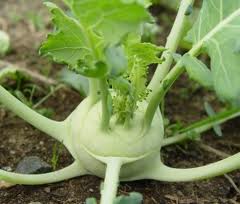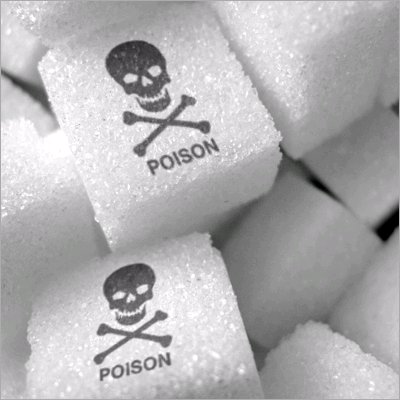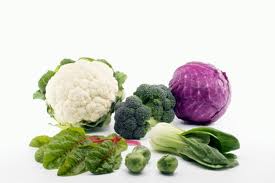Beans- Legumes Beans, peas and lentils are all legumes.Legumes are low in fat, and high in fiber, folate, potassium, iron and magnesium. Beans and other legumes is a healthy substitute for meat, which has more fat and cholesterol. There are many ways to prepare beans; soups, stews, rice dishes..ect. Beans are good for you, and it is no surprise that they may help fight cancer. They contain several types of phytochemicals that may protect the body’s cells against damage that can lead to cancer. In the lab, studies showed that these substances slowed tumor growth and prevented tumors from releasing substances that damage nearby cells. Beans have significant amounts of fiber and soluble fiber. One cup of cooked beans provide between 9 and 13 grams of fiber. Soluble fiber can help lower blood cholesterol. Beans are also high in protein, and complex carbohydrates. References Centers for Disease Control and Prevention. Nutrition Facts on beans Mayo Clinic Nutrition Book Foods that...
Health Tips
Kohlrabi, belongs to the cabbage family and got its name from a German word meaning “cabbage-turnip”. which has the look of an organic green Sputnik, and a taste like fresh, crunchy broccoli stems. Inside the thick skin of a kohlrabi lies a crisp, juicy vegetable that is good raw or cooked. Kohlrabi is rich in vitamin C and potassium. “It is known to help stabilize blood sugar and is helpful for hypoglycemia and diabetes.” You can Juice it too! Read more: How to Juice Kohlrabi | eHow.com http://www.ehow.com/how_8064180_juice-kohlrabi.html#ixzz1rmcxy02x http://www.ehow.com/how_8064180_juice-kohlrabi.html...
Best sugar is in the food that God provides for us to eat in moderation, bananas, mangoes, oranges, sugar cane, tangerines, grapes, you name them. Man made food is killing us including sugar,and its addicting too. Watch out for foods heavy with refined sugars, like pastries and sugary cereals. These foods offer calories without many essential nutrients. High sugar foods and drinks may also cause your energy to soar briefly before it falls to lower levels. You may feel more drained and hungry, even if you ate breakfast. Sugar cause fermentation in the stomach. Milk and sugar combined is one of the worst combination. Use little sugar, milk or honey in moderation. God wants us to be healthy so let us stick to the diet He gave us in Genesis 1:29. see Nutrition I love my lemonade with brown sugar but slowly cutting back, help me Jesus. Eat the fruits and get the sugar you need Beverley, in moderation and less of the man-made sugars. God gives us all the nutrients we need from the food He provides for us. Sugar is not bad, it is the processed man-made sugar that is toxic and is slowly killing us (Aspartame, Splenda).. , . Our body, brain need sugar for energy. When we eat fruits such as banana, mango, oranges and sugar cane we get sugar (natural). Yet we should not overload ourselves with the natural food either moderation is the key. The sugars that are man-made are killers and its toxic and addicting, my struggle is with the brown cane sugar I use that in my herb tea and lemonade.I even bring some back with me each time I visit JA. Moderation is the key. Watch this video. Whats your take.??? Source: Foods that Heal, Medical Dictionary; .Natural Remedies Encyclopedia, The Holy...
Cruciferous vegetables include broccoli, Swiss chard, arugula, collards, kale, cauliflower, cabbage, Chinese cabbage, brussels sprouts, bok choy, kohlrabi, mustard greens, radishes, turnip greens, turnips, rutabaga, and watercress, . Cruciferous vegetables are rich in zinc, vitamins A, B, C, D and E and have been regarded for centuries as medicinal foods. These members of the cabbage family make an excellent stir fry and can be added to a salad. Epidemiological studies found that consumption of this group of vegetables was associated with decreased risk for cancer. Cruciferous vegetables contain a kind of phytochemical known as isothiocyanates, which stimulate our bodies to break down potential carcinogens (cancer causing agents). Substances in these vegetables may help your body defend against cancers of the colon, breast, lung, and cervix., Other beneficial substances found in cruciferous vegetables include fiber and the antioxidants vitamin C and beta carotene. kohlrabi Related information: Super Veggies–...
Other common name(s): antioxidants, flavonoids, flavones, isoflavones, catechins, anthocyanidins, isothiocyanates, carotenoids, allyl sulfides, polyphenols. The term “phytochemicals” refers to a wide variety of compounds produced by plants. They are found in fruits, vegetables, beans, grains, and other plants. Scientists have identified thousands of phytochemicals, although only a small fraction have been studied closely. Some of the more commonly known phytochemicals include beta carotene, ascorbic acid (vitamin C), folic acid, and vitamin E. Some phytochemicals have either antioxidant or hormone-like actions. There is some evidence that a diet rich in fruits, vegetables, and whole grains reduces the risk of certain types of cancer and other diseases. Researchers are looking for specific compounds in these foods that may account for the beneficial effects in humans. References Medical Dictionary: PDR for Herbal Medicines, American Cancer Society, NCI Drug Dictionary. Other Links: Phytochemicals at LPI – Linus Pauling Institute at Oregon State University, Phytochemical Database – United States Department of Agriculture : Additional Information about Phytochemicals. -American Cancer Society...
Ten recommendations for cancer prevention by the American Institute for Cancer Research,” Each recommendation links to more details. 1. Be as lean as possible without becoming underweight. 2. Be physically active for at least 30 minutes every day. 3. Avoid sugary drinks. Limit consumption of energy-dense foods. 4. Eat more of a variety of vegetables, fruits, whole grains and legumes such as beans. 5. Limit consumption of red meats (such as beef, pork and lamb) and avoid processed meats. 6. If consumed at all, limit alcoholic drinks to 2 for men and 1 for women a day. 7. Limit consumption of salty foods and foods processed with salt (sodium). 8. Don’t use supplements to protect against cancer. 9. * It is best for mothers to breastfeed exclusively for up to 6 months and then add other liquids and foods. 10. * After treatment, cancer survivors should follow the recommendation And always remember – do not smoke or chew tobacco. Disclaimer Read more Information at AICR-American Institute for Cancer...




